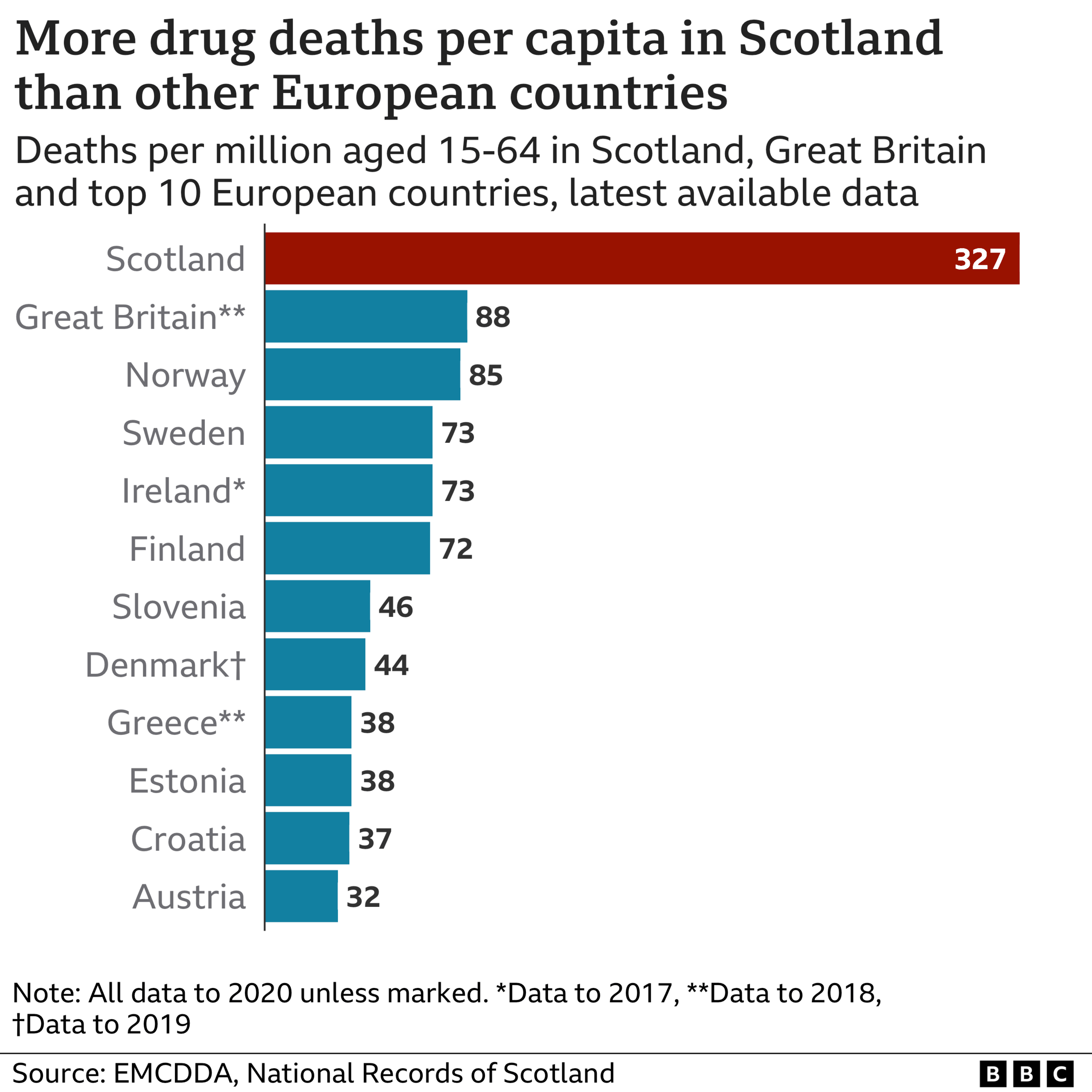Collective failure in substance misuse care, report finds
- Published

The report looks at the experience of people living with both both mental ill health and problematic drug and alcohol use
People experiencing mental ill health along with substance misuse problems are being failed by support services across Scotland, a report has found.
The Mental Welfare Commission (MWC) said guidance and standards set out nationally were not being followed at a local level.
The "collective failure" was having a direct impact on the lives of "very vulnerable people", the report added.
The Scottish government said it would consider the commission's findings.
The MWC report examines the experience of people living with both mental ill health and problematic drug and alcohol use.
It found that fewer than a quarter of NHS professionals surveyed agreed that adequate care and treatment was currently being provided.
Dr Arun Chopra, the MWC's medical director, called it a crisis and "collective failure", which existed despite "abundant policies, guides and standards" being set a national level.
"We found a failure to implement them at local level. Despite guidance that emphasises the need for clear written protocols on joint working, the absence of, or lack of awareness of, protocols for joint working is somewhat hard to believe," he said.
"There is also a lack of recognition of the need to address substance use and mental illness concurrently. Whilst the substance use may be perpetuating the problem, without treatment of their mental ill health, it is likely that the person will struggle to stop using drugs or alcohol."
Dr Chopra said the commission had found "pockets" of good practice which showed a "real desire" to improve care and treatment.
He added: "As a next, urgent step, rather than create new strategies, we call on services to deliver the strategies already in place, and on government to monitor this and report on progress in 12 months."


Thursday's report echoes concerns already raised by people trying to access mental health and addictions services: the right treatment isn't always guaranteed and the connection between services is often disjointed or non-existent, despite a "No Wrong Door" policy.
This time these issues are not only expressed by users. Professionals on the front line also say Scotland's treatment services aren't meeting the needs of the most vulnerable, especially those with mental health problems made worse by substance abuse.
GPs reveal situations where patients are "automatically rejected" by psychiatry services. They are sent instead to addiction services that are under pressure to implement new standards set by the Scottish government. As this report reiterates, those standards still aren't being met across the country.
The solution already exists, says the Mental Welfare Commission, and it isn't asking for new policies.
It calls for plans already in place to be fully and consistently rolled out across the country. It also highlights a hub in Angus which did not reject any of the around 850 people who walked through its doors.

Scotland continues to have by far the highest drug death rate recorded by any country in Europe, despite a slight fall in deaths last year.
And figures published by National Records of Scotland in August show that alcohol deaths in Scotland rose again last year and remain at their highest level since 2008.
The report points to estimates that alcohol and drug misuse was a factor in about half of all suicides in Scotland between 2008 and 2018.
It found services were not meeting the needs of people who had both mental ill health and problems with substance use.

About 90% of GPs surveyed reported difficulties in referring patients to mental health and addiction services, including in times of crisis.
GPs reported that referrals could be declined from community mental health services because of the person's drug or alcohol use, leaving the GP to re-refer to other support.
Families also told the commission they felt there was a lack of support along with "patchy, inconsistent services". Many families felt frequently dismissed and excluded from planning appropriate care.
The report claimed that there was a stigma surrounding substance misuse which was still preventing the issues being seen as health problems and was "compounding suffering" for individuals and their families.
A Scottish government spokesperson said a "raft of activity" was under way to implement improvements that were designed to lead to more effective and "joined-up" care for those suffering from mental health and substance misuse problems.
"We will consider report from the Mental Welfare Commission and will work closely with local authorities, health and social care partnerships and NHS Education to carefully consider its findings in the context of wider work we are already undertaking to improve mental health and substance use services," the spokesperson added.